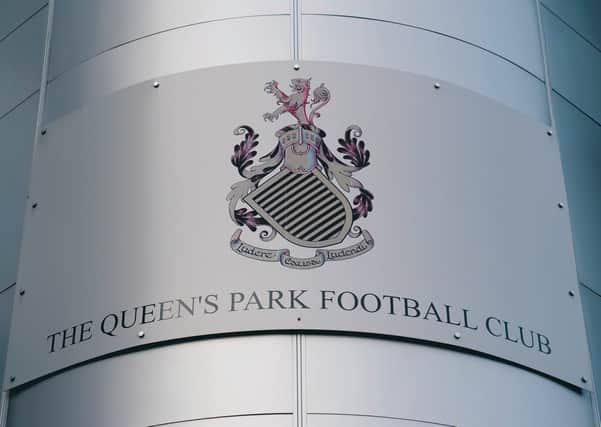Queen’s Park coping despite having to furlough players six weeks after turning pro


Queen’s Park would be entitled to believe the fates have conspired against them more than most in the teeth of the Covid-19 crisis. Across the 152-year history of Scotland’s oldest football club, amateur status and their homestead being Hampden were worn as badges of honour. Only for them to be turned in just ahead of the world being turned outside in.
The Glasgow club only moved their squad on to professional contracts at the end of January. Six weeks later, these players essentially had no gainful employment as a consequence of the halt to all activities necessitated by the global pandemic. In March – that lifetime ago – the club was close to concluding building contracts for the redevelopment of Lesser Hampden, following the £5.1 millon sale of the national stadium to the Scottish FA last summer. Now that has been forced into abeyance by the shutdown.
Advertisement
Hide AdAdvertisement
Hide AdGerry Crawley, the Queen’s Park president, refuses to look upon his club as the organisation that put all their chips on black only for the roulette wheel of existence to come up red, though. Quite the opposite in fact.
In a recent address to supporters, the 57-year-old former Queen’s Park, Dumbarton, Brechin City and St Johnstone player ruefully reflected on the fact that he thought his second year in the role would strictly revolve around the potential for on-field growth that the structural changes had given the impetus for. He still thinks that will be the case – just later than anticipated.
“Personally, I have no regrets about the move to go professional,” said Crawley, who stresses any football problems pale when set against what is going on across the planet. “We could read the ruins, see how the game was developing. It was a multi-faceted decision and, in this crisis, will still offer us protections we wouldn’t have had otherwise.
“Our youth academy has been a crucial part of what we have always been about and now, unlike in the past, we are compensated and compensated fairly for any young players we produce. And, frankly, if we were still amateur we would have lost all our players, they would have gone free as the season was ended. When you have players who play for nothing, that is the situation, and puts you back to square one every summer. We are in a different position now.”
The contracts that now require to be honoured for the squad are not regarded as a burden by Crawley but an opportunity to continue in the traditions that have characterised the Queen’s Park way. In no small part, that explains why a decision was taken to make up the 20 per cent not covered by the government’s job retention scheme when the squad was furloughed following the lockdown.
“Even if they were previously amateurs, we have a proud reputation for treating players well, and I know that through my own spell with the club,” he said. “We weren’t going to encourage them to go professional and then within a matter of weeks not honour those contracts in full.”
Crawley is disappointed that the curtailment of League Two prevented the then fifth-placed south side of Glasgow club pushing for a play-off place under recently recruited manager Ray McKinnon. But he is philosophical about that, as he is about the need to delay the ground improvements that would have allowed Queen’s Park to flit from Hampden to Lesser Hampden to play their games come the turn of the year.
“Whenever construction does return we will be in a position to get going on that quickly,” he said. “But there was a mechanism in place in the sale agreement with the SFA that allowed us to continue using Hampden until our stadium was ready.
Advertisement
Hide AdAdvertisement
Hide Ad“The postponement of Euro 2020 means we may actually be able to use a window in July for work on Lesser that had been closed because of Hampden’s host status for the finals. Nothing that has happened will prevent us retaining real ambition, grounded in common sense, to move the club forward.”
Comments
Want to join the conversation? Please or to comment on this article.